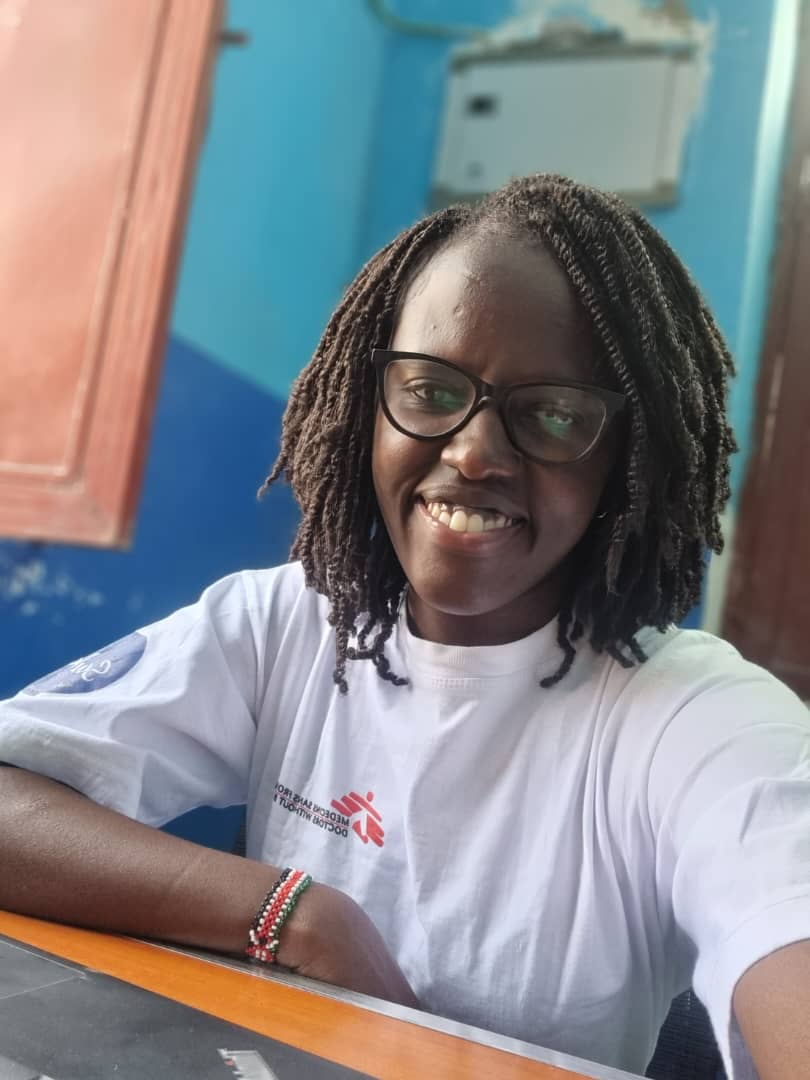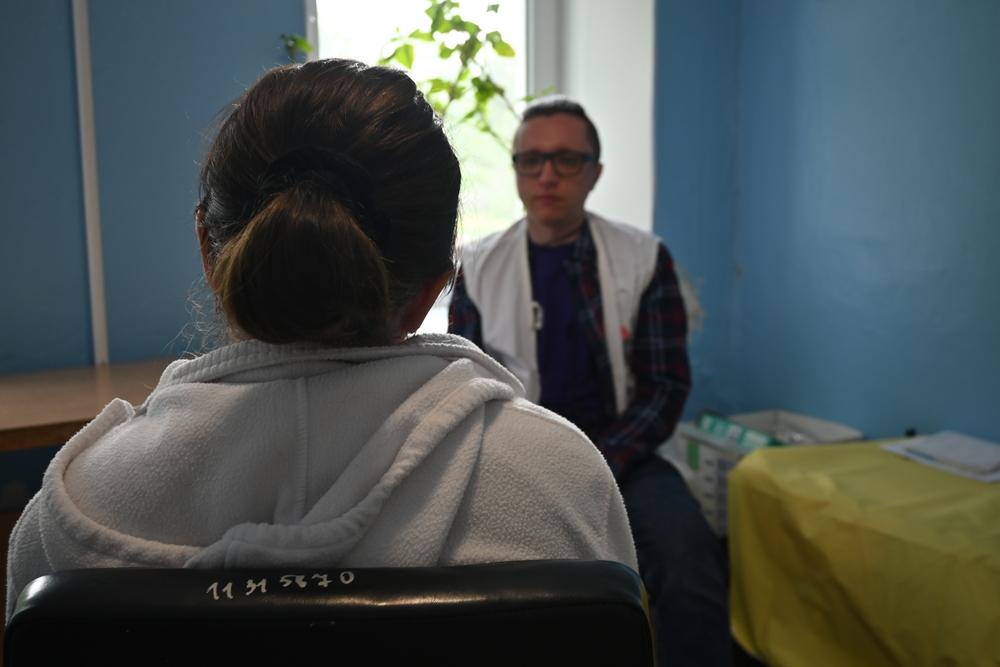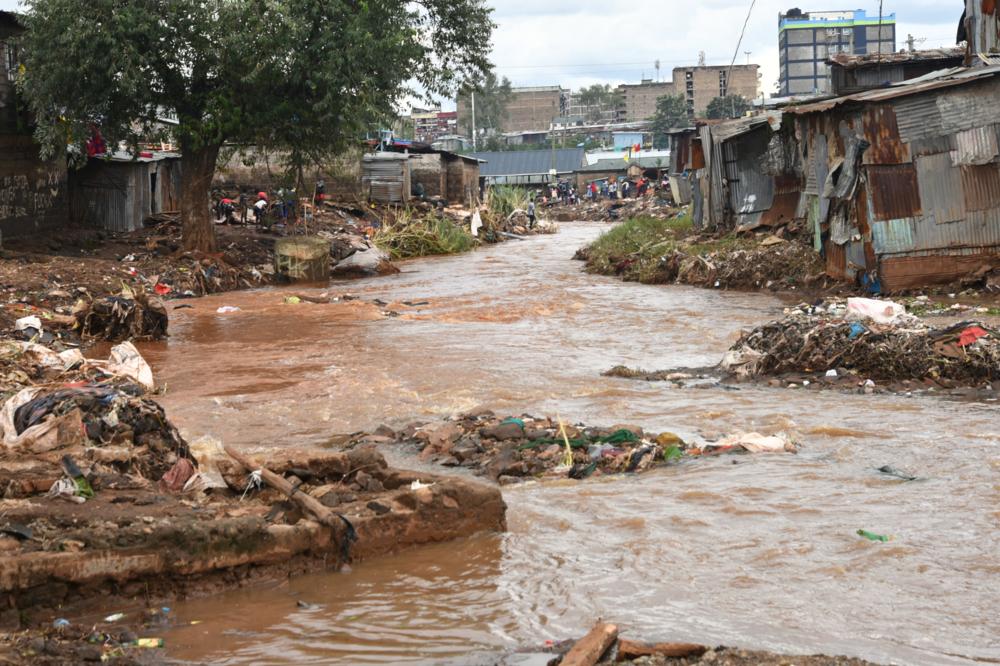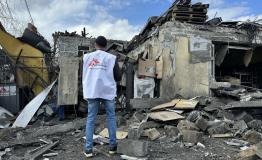Ann Njambi works with MSF in Ukraine as Mental Health Manager. She describes the challenges and her work supporting those grappling with the dire mental impacts of the war.
"My journey with MSF began in Kenya in 2019, a journey marked by learning, friendship, and a profound sense of family. The shift to Ukraine in 2023, amid an active war with Russia, has presented unique challenges and opportunities.
The war between Russia and Ukraine that started in 2014, and intensified in February 2022, has sparked many mental health issues. People in Ukraine have weathered shelling and missile attacks, faced displacement, and endured the separation or loss of loved ones. People feel uncertain about the future. As a result, many are experiencing post-traumatic stress, anxiety and depression.
As a Mental Health Activity Manager for MSF in Ukraine, I see my work as incredibly important to strengthen the support available for those grappling with the dire mental impacts of the war. My days balance between providing technical support to our mental health team, ensuring patients' needs are met, and building the capacity of external mental healthcare professionals.
Collaboration is the cornerstone of addressing mental health challenges. The enormity of the mental health needs in Ukraine prompted collaborations with local organisations and government agencies. My role involves reaching out to stakeholders and overseeing participation in groups to coordinate mental health support.
War inflicts wounds that are not always visible. In the east of Ukraine – close to the frontlines of the fighting – the loss of loved ones, property, and livelihoods is widespread; and the mental health toll is alarming. MSF runs medical programs for people grappling with these challenges to help individuals regain a semblance of normalcy. From transit centers to healthcare facilities and villages, we offer mental health services, ranging from psychological first-aid to psychoeducation and counselling.

Our strategies for mental well-being are as diverse as the needs we encounter. Individual and group counselling, art and play therapy for children, and psychological first aid after missile strikes are all integral components. In addition, in the Vinnytsia, located in the west of Ukraine where many people have fled, MSF has set up a center for post-traumatic stress. Our team of healthcare professionals provides long-term specialised care for people who have experienced significant loss or trauma, including survivors of torture and sexual violence. Our goal is to be a beacon of support in the darkest of times.
Ukraine's diverse population poses unique challenges in providing culturally sensitive mental health services. Many among the older generation have a limited understanding of mental health, which necessitates intensive efforts to educate them on the need for psychological support. In addition, stigma remains a barrier to people seeking mental health services. Recognizing this, our mental health and health promotion teams intensified efforts to educate the people on psychological support. Patience and the establishment of a therapeutic relationship of trust have become our foremost tools in dismantling the stigma surrounding mental health.
After a night of shelling in the Zaporizhzhia, one of the regions on the frontline of the war, I witnessed the tangible impact of our response. A woman, initially disoriented, found solace in our presence. Amid the chaos, we provided not only mental health support but also referrals for her other health needs. The gratitude expressed by her reminded me of why our work here is so important.
In the context of Ukraine's ongoing challenges, my message is one of understanding, support, and hope. Mental health is not a solitary battle, but it is a collective journey that requires acknowledgement and compassion. Our team stands united, navigating the complexities of war and the impacts this has on people. To me, this is a glimpse into the vital role mental health support plays in rebuilding shattered lives; and in fostering resilience and hope for a better tomorrow."



